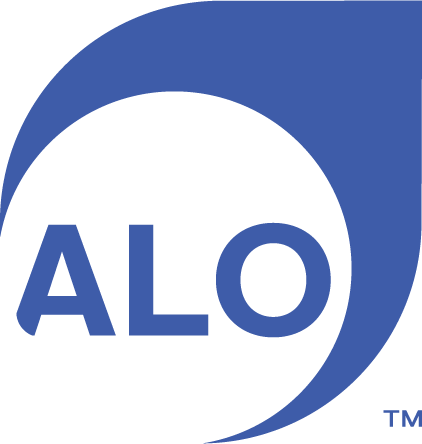5 Things That Might Be Costing Your Practice Money
If you’ve ever stayed up half the night trying to account for every dollar coming in and going out of your medical practice, you know financial matters are some of the biggest frustrations a physician can face.
Maybe you have a pretty good sense of your healthcare practice costs and an accountant who guides you. Or maybe you know you’re doing well, but only because you’re working so many hours that you don’t have time to do anything else.
If you’re like most physician-owners, though, there’s a good chance you still have a nagging feeling you’re not doing enough to maintain a thriving, financially healthy practice.
My Alo colleagues and I have talked with enough independent physicians across North Carolina to see some patterns emerge in the business challenges they face. A lot of these discussions start with questions from physicians about critical decisions they’re considering, like whether to sell, change their business model, seek capital, or start transition planning.
But not every step toward a better financial future has to be so overwhelming. From those conversations, we’ve identified five practical tips to help you get your practice on track and on the way towards long-term financial stability and independence:
Understand contracts and rates. A good place to start is to review the agreements you’ve signed or are considering signing. Since contract and payment terms are complex, it’s essential to seek input from trusted resources and partners—professional associations, provider organizations and healthcare attorneys that can break down complex clauses, explain value-based care options and benefits, and ensure you receive fair fee-for-service rates based on the value your practice generates.
Make sure you or your practice’s expert partner reads your contracts and agreements thoroughly before signing. Alo’s Head of Legal and Compliance, Lynn Gordon, is passionate about this having let physicians know that a good understanding of contracts and negotiations is crucial to their success. One recent development that can trip you up is the ease of signing electronically, she says. “You get a text or an email, and it’ll simply say press here to sign this contract. Don’t do that. Please don’t do that. You’re not even looking at it. And that’s the point. It’s like phishing.”
Use all available and appropriate billing codes and modifiers. Our experience is that independent practices are often too time-strapped to systematically review new codes and adjust to changes in the old ones. Getting paid appropriately for what you do requires fluently speaking the language of codes and modifiers. Make sure you invest time to understand coding changes or, consider partnering with a medical billing specialist who can help ensure accurate claim submission, freeing you up to focus on patient care.
Take advantage of strength in numbers. This takes a little planning but is still an avenue that not enough independent physicians consider. Many options are in place in North Carolina for physicians to join an accountable care organization (ACO) and a clinically integrated network (CIN) to participate with other providers in establishing and meeting quality standards and being rewarded for those quality standards. (Yes, you heard it right, you can be in both an ACO and a CIN under the right circumstances.)
Collaborating with like-minded physicians opens a new world beyond going it alone. Setting benchmarks and measuring performance are a part of it; having clinical and operational discussions with your physician peers is another aspect. You want to be in position to be rewarded for the work you do in providing great care and managing costs.
As healthcare moves to value-based care models, participating in these collaboration opportunities should become more common for physician practices. We’ve written plenty about CINs and ACOs.
Stay on top of revenue cycle management. A leaky faucet wastes water, and a leaky revenue cycle wastes hard-earned income. Revenue cycle management (RCM) is about more than the bottom line, it’s about building a sustainable practice that prioritizes both patient care and financial well-being.
Optimizing your RCM is crucial for financial stability and growth. Here's why:
● Early is key: The longer you wait to collect payments, the more time and resources you'll need to spend on it and the more likely you'll encounter bad debt and write-offs. Proactive billing and follow-up minimize this risk, keeping your cash flow consistent.
● Verification is vital: Verifying insurance and benefits upfront prevents claim denials down the line, saving you time, resources, and the hassle of refiling. Checking ahead of time with a patient's insurance also helps you determine copays or deductibles so that you can capture those payments sooner, rather than later.
● Patient education pays off: Compassionately educating patients about their responsibilities fosters trust and transparency, leading to smoother transactions and an improved patient experience. Clearly communicate financial expectations and offer flexible payment options.
These three top RCM practices are baked into Alo’s Avance Care platform, which was recognized for high performance by the Healthcare Financial Management Association.
Maximize your EMR for better efficiency. Electronic medical records software is complex, but it can be used to your advantage with a few simple steps, whether you manage EMR yourself or have a physician enablement platform or MSO handle the heavy lifting.
One opportunity we see for practices is to maximize patient flow. Use your EMR to remind patients about Annual Wellness visits or prompt staff to schedule patients next appointment as they leave the office, for example.
With these five tips in mind, take the time to review your financial documents, agreements and internal processes to see if you’re maximizing revenue and minimizing healthcare practice costs. Your financial future as an independent physician could depend on it.
